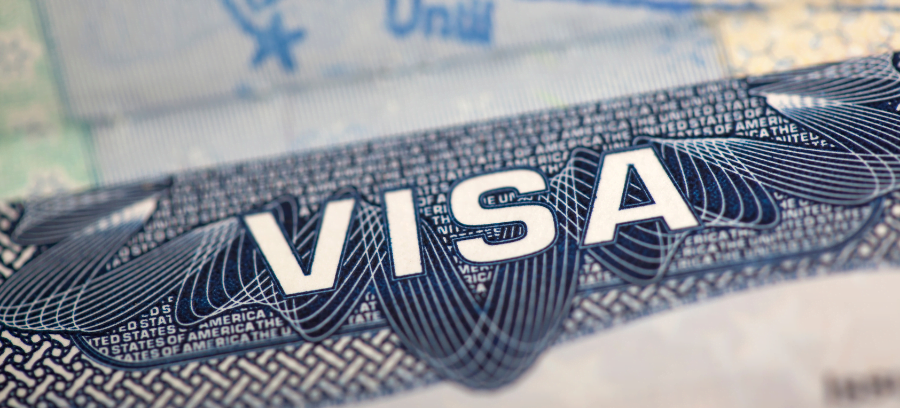Launching a company in another country is thrilling but tough. All over the world, business folks chase settings that promise potential growth and victory. Canada is a top pick for those dreaming to start businesses due to its powerful economy and inviting immigration laws. The Canada Startup Visa, part of these laws, shines as a major lure. But how does it stack against other business visas? Let’s deep dive into a side-by-side review.
Understanding the Canada Startup Visa
The Canada Startup Visa is designed to attract innovative entrepreneurs who can create jobs for Canadians and compete on a global scale. It’s an enticing option for many reasons:
- Access to Funding: Candidates need to get at least some funding from a specific Canadian venture capital fund, angel investor group, or business incubator. This support guarantees not just money, but also shows the business idea is good.
- Permanent Residency: To proceed, candidates need to get a certain level of funding from a designated Canadian venture capital fund, angel investor group, or business incubator. Such support offers financial backup and also verifies the business concept.
- Support Network: The program provides a support network through designated organizations that offer mentorship and resources to help startups thrive in Canada.
Visa processing time can take between 12 to 16 months. This is a time when applicants have to fulfill all conditions. They need to be good at the language and have enough money to settle in.
Key Features of the Canada Startup Visa
Access to the Canadian Market
Canada, famous for its robust economy and varied citizens, also boasts a high living standard. A Canada Startup Visa paves the way for entrepreneurs to explore a market ripe with growth opportunities. The Canadian government champions novelty and change, a perfect place for startups to thrive.
Permanent Residency Benefits
Achieving lasting residency via Canada’s Startup Visa brings many pluses. Permanent residents can use Canada’s top-level healthcare, first-rate education, and broad social amenities. Also, they can live and work throughout Canada, giving them room to stretch and chances for advancement.
Support from Designated Organizations
Canada’s Startup Visa stands out due to one special feature, backing from special organizations. It receives help from groups like venture capital funds, angel investor collectives and business incubators. These bodies offer guidance, tools, and connections that become key to startup triumphs. This invaluable assistance can greatly boost the odds of victory for fresh businesses on Canadian soil.
Comparing the Canada Startup Visa with Other Entrepreneurial Visas

United States EB-5 Immigrant Investor Program
The EB-5 Immigrant Investor Program in the United States is another popular option for entrepreneurs. However, there are key differences when compared to the Canada Startup Visa.
- Investment Requirement: The EB-5 scheme mandates an investment floor of $1.8 million or a reduced $900,000 in specified job zones. This is remarkably more than the funds needed for the Canada Startup Visa.
- Job Creation: EB-5 investors have to ensure that a minimum of 10 full-time jobs for U.S. workers is either created or maintained. On the other hand, while job growth is a focus of the Canada Startup Visa, no specific tally for jobs is stated.
- Permanent Residency: Each program provides a route to stay permanently. Yet, the Startup Visa in Canada is typically seen as simpler, thanks to its specific guidelines and the backing from approved entities.
United Kingdom Innovator Visa
The UK Innovator Visa is aimed at experienced businesspeople looking to establish a new business in the UK. Here’s how it stacks up against the Canada Startup Visa:
- Investment Requirement: Applicants must have at least £50,000 to invest in their business. This amount is comparable to the requirements of the Canada Startup Visa.
- Endorsement: Like the Canada Startup Visa, applicants need an endorsement from an approved body. This endorsement assesses the viability and innovation of the business idea.
- Permanent Residency: The UK Innovator Visa can lead to indefinite leave to remain (ILR) after three years, similar to the path to permanent residency in Canada.
Australia Business Innovation and Investment Visa (Subclass 188)
Australia offers several visas under this category, but the Business Innovation and Investment Visa (Subclass 188) is the most relevant for comparison.
- Investment Requirement: Each stream dictates the investment amount. Applicants must invest anywhere from AUD 200,000 to AUD 1.5 million. Compared to the Canada Startup Visa, this is higher.
- Provisional Visa: Initially, this visa is temporary, with the possibility of applying for a permanent visa after meeting specific criteria.
- State or Territory Nomination: Applicants need to be nominated by an Australian state or territory government, adding an extra layer to the application process.
Additional Entrepreneurial Visa Options
New Zealand Entrepreneur Work Visa
The New Zealand Entrepreneur Work Visa is another option for entrepreneurs looking to establish a business abroad.
- Investment Requirement: Applicants must have a minimum capital investment of NZD 100,000 (excluding working capital), which is lower than some other visas but still higher than the Canada Startup Visa.
- Business Plan: A detailed business plan is required, outlining the nature of the business, market analysis, and projected financials.
- Permanent Residency: Entrepreneurs can apply for permanent residency after running their business successfully for two years, or six months if they meet additional criteria.
Singapore EntrePass
The EntrePass is Singapore’s visa for entrepreneurs wanting to start and operate a business in Singapore.
- Investment Requirement: There is no fixed investment requirement, but applicants must demonstrate a viable business idea and plan.
- Innovative Business: The business must be innovative and contribute to the growth of Singapore’s economy.
- Permanent Residency: EntrePass holders can apply for permanent residency after meeting specific business milestones.
Why Choose the Canada Startup Visa?

The Canada Startup Visa offers unique advantages that make it an attractive option for entrepreneurs:
- Reasonable Investment Requirement: Compared to other programs, the required investment is relatively low, making it accessible to a broader range of entrepreneurs.
- Permanent Residency: The direct path to permanent residency is a significant draw, offering stability and numerous benefits for the entrepreneur and their family.
- Support and Mentorship: The involvement of designated organizations ensures that startups have the necessary support to succeed in Canada’s competitive market.
Moreover, Canada’s varied and welcoming community, excellent living conditions, and robust economy make it a perfect place to build and expand your business. Are you considering immigration? Immignation is here to provide specialist advice and help to make that shift easier.
The Role of Canada Business Visa
The Canada Startup Visa is crafted for inventive business people, whereas the Canada Business Visa accommodates different commerce needs. This particular visa is made for folks who are keen to check out commerce possibilities in Canada, participate in discussions, or connect with expected associates.
Canada’s Business Visa is usually temporary, not a route to permanent living there. But, it’s a good start. Especially if you’re thinking about other options for long-term business moves, like the Canada Startup Visa. This visa lets business people learn about the Canadian market. It helps them make smart choices for their businesses.
How Immignation Can Help
Immigration is a tricky journey. This is exactly why you need immignation’s help. Focused on company-related immigration, they offer full support to guide you from start to end. The process starts with first meetings, moving towards preparing and submitting your applications. Their proficient group is dedicated to giving you the highest odds of success.
Immignation can help you grasp the subtleties of canada startup visa processing time, making sure you’re on top of all due dates and requisites. Their custom-made strategy provides you with aid tailored to your business plans and objectives.
Conclusion
Immignation can help you grasp the details of the Canada Startup Visa’s processing time, making sure all deadlines and requirements are met. Their customized strategy gives you assistance tailored to your particular business aims and needs.
Thinking about setting up shop in Canada? Immignation can guide you right. They cover all – starting from the first chat to going through the application process. They make sure you’re well-informed all the way.
FAQ’S
What is the Canada Startup Visa?
The Startup Visa from Canada is made to pull in trailblazing business people to the nation. It opens the door to permanent stay for those who run businesses and can get backing from appointed Canadian organizations and make work opportunities for Canadian folks.
What is the processing time for the Canada Startup Visa?
Getting a Startup Visa for Canada usually takes between a year and 16 months. During this time, you nail down investors, prove your language skills, and show you’ve got enough money to settle in.
How does the Canada Startup Visa differ from the Canada Business Visa?
The Canada Startup Visa helps entrepreneurs build unique enterprises and it provides a way to becoming a permanent resident. Unlike this, the Canada Business Visa is typical for brief business trips, without offering a route to permanent residency.
Can I get help with my Canada Startup Visa application?
Indeed, services such as immignation offer wisdom and backing during the application procedure. They assist with tasks ranging from creating your business strategy to understanding the elaborate immigration requisites, boosting your probability of succeeding.

